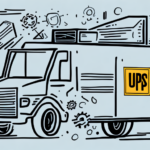Understanding Courier Services
Courier services specialize in the delivery of parcels, documents, and packages from one location to another. These services handle a wide range of items, including letters, legal papers, medical specimens, appliances, furniture, and machinery. Couriers can operate locally, regionally, nationally, or internationally, catering to businesses, individuals, and government institutions.
One of the primary advantages of using courier services is their speed and reliability. Unlike traditional mail, courier companies often provide same-day or next-day delivery options, which are essential for time-sensitive shipments. Additionally, many courier services offer real-time tracking, allowing senders and recipients to monitor the progress of their deliveries.
Courier services are also known for their flexibility. They typically offer various delivery options, including express, standard, and economy services, as well as specialized services for fragile or hazardous items. Businesses can benefit from customized solutions such as warehousing, inventory management, and distribution services to meet their specific needs.
Types of Courier Services
- Same-Day Delivery: Ideal for urgent shipments, ensuring delivery on the same day of pickup.
- Next-Day Delivery: Guarantees delivery by the next business day.
- International Shipping: Facilitates overseas deliveries, including customs clearance and tracking.
- Freight Services: Handles large and heavy items that standard packages cannot accommodate.
- Specialized Services: Tailored for specific industries such as medical, legal, and financial sectors.
How Courier Services Operate
The courier process begins with the sender arranging a pickup and providing the necessary addresses. The courier company assigns a driver or courier to collect the package and deliver it to the recipient. Throughout the delivery process, real-time tracking is available, ensuring transparency for both parties. Upon delivery, the recipient typically signs to confirm receipt.
Additional features may include insurance options to protect against loss or damage, expedited delivery services for urgent needs, and international shipping solutions that navigate customs regulations and fees.
The Role of Couriers in Society
Historical Perspective
Couriers have been an integral part of societies since ancient times, facilitating the exchange of messages and goods over long distances. In medieval Europe, couriers played a crucial role in delivering official messages for monarchs and nobles. The advent of the railway system in the 19th century revolutionized courier services, enhancing speed and efficiency. Today, courier services are vital to the global economy, supporting businesses of all sizes in their logistical operations.
Importance for Businesses and Individuals
For businesses, courier services provide a reliable method for shipping products to customers, delivering important documents to partners, and transporting materials between locations. According to a Statista report, global e-commerce sales reached over $4.2 trillion in 2020, underscoring the critical role of couriers in facilitating online commerce.
Individuals use courier services to send gifts, important documents, or items purchased online. During the COVID-19 pandemic, the reliance on courier services surged as more people turned to online shopping and home deliveries to reduce exposure to the virus.
Impact of Technology and Future Trends
Technological advancements have significantly influenced the courier industry. Innovations such as drones, autonomous delivery vehicles, and artificial intelligence are transforming how deliveries are managed and executed. These technologies aim to enhance efficiency, reduce costs, and improve delivery speed. According to a McKinsey report, the integration of AI and big data analytics is expected to optimize delivery routes and increase overall operational efficiency.
The future of the courier industry is poised for continued growth, driven by the expansion of e-commerce and the adoption of emerging technologies. Sustainable practices, such as the use of electric vehicles and eco-friendly packaging, are also becoming increasingly important as companies strive to reduce their environmental footprint.
Careers in the Courier Industry
Skills and Qualities Required
Successful couriers possess strong time management and organizational skills. Attention to detail and excellent communication abilities are essential for coordinating deliveries and addressing any issues that arise. Physical fitness is important, as couriers often handle packages of varying sizes and weights. Additionally, couriers should be tech-savvy, utilizing GPS tracking and digital tools to manage their routes and deliveries efficiently.
A Day in the Life of a Courier
A typical day for a courier involves planning delivery routes, organizing packages based on priority and location, and ensuring timely deliveries despite potential challenges such as traffic or unexpected delays. Couriers must navigate efficiently, communicate with clients and recipients, and handle any unforeseen issues to maintain high service standards.
Becoming a Courier Entrepreneur
Starting a courier business requires thorough industry research to identify in-demand services and potential niches. Developing a comprehensive business plan, securing funding, and acquiring the necessary equipment are crucial initial steps. Building strong relationships with clients and establishing an online presence can help attract and retain customers. Success in the courier industry demands dedication, adaptability, and a commitment to meeting evolving market demands.
Choosing and Using Courier Services
Selecting the Right Courier Service
With numerous courier options available, selecting the right service involves evaluating factors such as price, delivery speed, tracking capabilities, and customer service quality. Reading online reviews and seeking recommendations can provide valuable insights into a courier's reliability and performance. Choosing a reputable service ensures that packages are delivered safely and on schedule.
Common Misconceptions Debunked
- Cost: Many believe courier services are prohibitively expensive, but numerous affordable options exist for individuals and small businesses.
- Environmental Impact: Contrary to popular belief, many courier companies are adopting eco-friendly practices, such as using electric vehicles and optimizing delivery routes to reduce carbon emissions.
- Reliability: While no service is flawless, most couriers implement measures to minimize lost or damaged packages and offer insurance to protect shipments.
Safety Tips and Best Practices
Ensuring safety is paramount for couriers. Best practices include wearing reflective clothing, staying vigilant of the surroundings, and avoiding distractions while driving. When handling heavy packages, using appropriate safety equipment like gloves and following proper lifting techniques can prevent injuries. Verifying the recipient's identity before delivery helps prevent theft and fraud.
Conclusion
Courier services are a vital component of modern society, offering fast, reliable, and efficient delivery solutions for both businesses and individuals. Whether sending a local package or an international shipment, choosing the right courier service can significantly impact the success and satisfaction of the delivery process. Understanding the various aspects of courier services, from their operations and technological advancements to career opportunities and safety practices, allows users to fully leverage the benefits this essential industry provides.






















